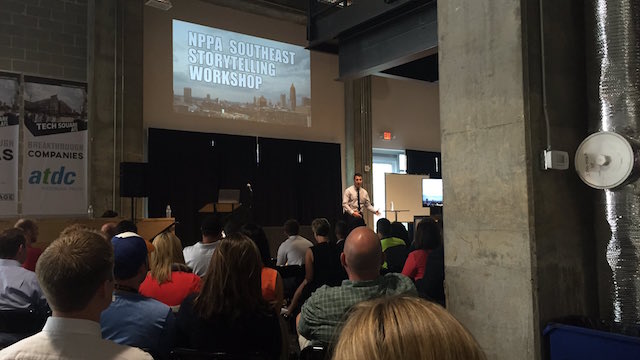Podcast: Play in new window | Download
Subscribe: RSS
I rarely ask a Telling the Story podcast guest to come back for a second episode. I like to spread the audio wealth and interview as many storytellers and journalists as possible to provide a full spectrum of perspectives for my audience.
But when a previous guest wins a National Edward R. Murrow award with one of the most pristine slices of video I’ve ever seen, I can make an exception.
Catherine Steward has captured numerous honors for her work as a photojournalist for WTVF-TV in Nashville. This may be her biggest yet. She took the Large Market TV station Murrow for Excellence in Sound, and the winning piece was a solo effort. Steward heard about a foundation called Strings for Hope that repurposes musical strings into wearable art, made by women who were formerly incarcerated with drug and alcohol addiction. In my earlier post about lessons learned from this year’s Murrow winners, I wrote this about Steward’s story:
It’s a beautiful concept, and Steward rises to it with an equally beautiful treatment. She captures crisp audio, whether on the Nashville streets or inside the string-spinning studio. Then she layers it in the edit with seamless fades in and out, musical and natural-sound-based scene switches, and pristine video to match.
This piece is a winner, no doubt. But it’s maybe the most instructive and practical for up-and-coming storytellers in need of inspiration.
I decided to interview Steward for the podcast because of that final observation. Young visual storytellers – photographers, reporters, or solo video journalists – should examine this piece for the myriad of techniques it includes. I asked Steward to deconstruct her story, scene by scene, nearly shot by shot, to give the rest of us a chance at producing something similar.
So BEFORE YOU LISTEN to this podcast, watch “Strings for Hope” below. And follow along with Steward on Episode #64 of the Telling the Story podcast.



